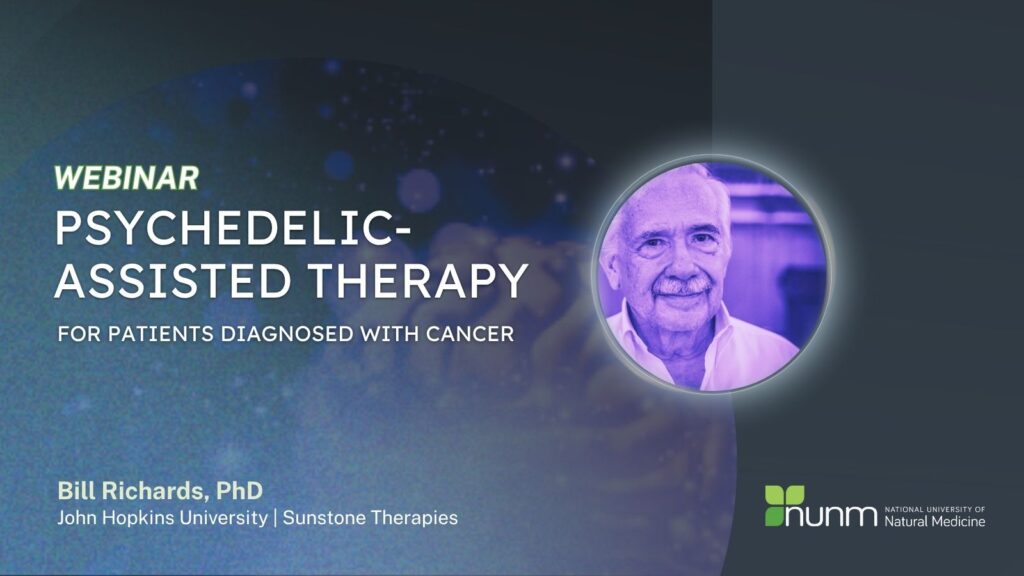In NUNM-hosted webinar, renowned researcher shares decades of insight on psilocybin’s therapeutic potential for cancer patients.

On June 12, the National University of Natural Medicine (NUNM) hosted a webinar featuring speaker Dr. Bill Richards, a pioneering figure in psychedelic research.
Co-hosted by students from NUNM’s Oncology Club and Psychedelic & Entheogen Club, the event aimed to explore “Psychedelic-Assisted Psychotherapy for Existential End-of-Life Distress in Cancer Patients.”
In the webinar, Richards offers a comprehensive account of psychedelic-assisted therapy across his career, focusing primarily on psilocybin use in treating cancer patients and supporting palliative care.
He emphasizes the power of psychedelic experiences to promote personal awakening, with participants often reporting feeling deeply connected to healing and spiritual transformation.
While there are many observable benefits to psychedelic-assisted therapy, Richards said among them is a reduction of the fear of death, a feeling of increased emotional connection, and an overall enhancement of quality of life.
He recounts a profound mystical experience in his early twenties that compelled him to explore the field further and shares case studies from decades spent working in the field, beginning in the 1960s.
Richards, who was featured on author Michael Pollan’s Netflix series “How to Change Your Mind,” shared results from early government-funded studies with LSD at the Maryland Psychiatric Research Center—all the way through the psychedelic research revival of the 1990s at Johns Hopkins University, for which he was a central figure.
In his studies involving terminal cancer patients, as well as those treated for alcoholism and depression, Richards said participates demonstrated relief from depression, anxiety, and fear of death. He noted that these effects often lasted six months or more after a single psilocybin session.
They also reported increased self-worth, emotional clarity, and a more profound peace with death.
“Many cancer patients following psychotherapy with psychedelics actually become the ‘social workers’ in their families,” Richards said. “Instead of lying in bed with the drapes closed not wanting anyone to see them this way, they’re engaged in life, valuing relationships, and it’s so inspiring to see.”
Richards said there are currently more than 200 approved clinical studies active in the United States that involve psilocybin, signaling a dramatic shift in medical research on psychedelic treatment.
As co-founder and senior advisor at Sunstone Therapies, an organization focused on integrating psychedelic-assisted psychotherapy into medical settings, he notes group-based therapy models are shown to be both effective and cost-efficient.
In closing, Richards expressed hope to elevate psychedelic therapy into broader care systems in the future.
“I would like to see psychedelics integrated into palliative care in fully legal ways and made accessible to people before I died,” he said. “I’m 85, so we gotta do this fast.”
Written by Ashley Villarreal, Marketing Content Specialist